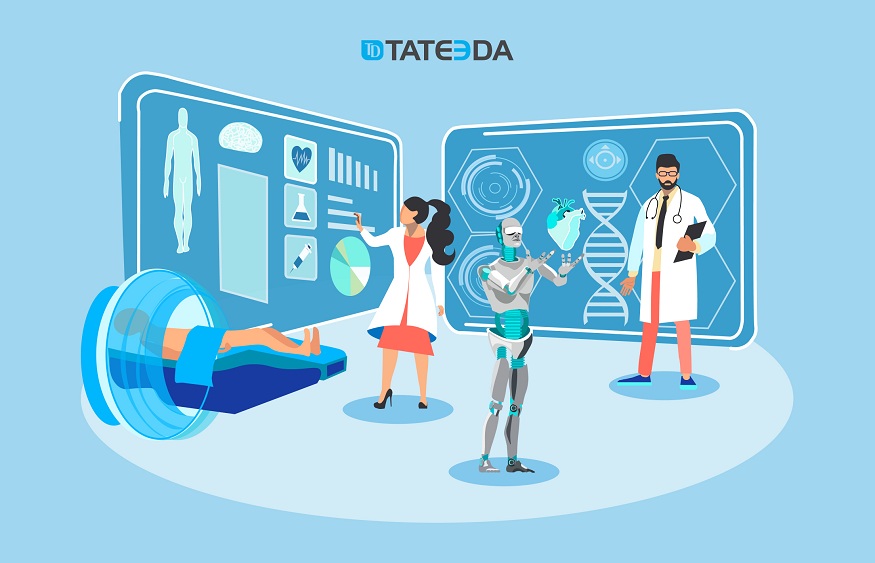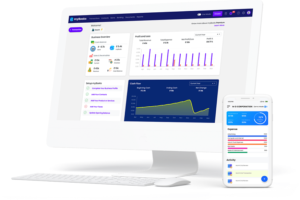AI in Physician Productivity and Performance
3 min read
Artificial Intelligence (AI) has emerged as a transformative force in the healthcare industry, revolutionizing various aspects of patient care, diagnosis, and treatment. One area where AI showcases immense potential is in enhancing physician productivity and performance. Here’s an exploration of how AI is reshaping the landscape of physician productivity and performance:
AI in Physician Productivity and Performance
Streamlining Administrative Tasks:
Physicians often grapple with administrative burdens, spending a substantial portion of their time on paperwork, documentation, and data entry. AI-powered tools, such as natural language processing (NLP) and voice recognition software, streamline these tasks. Dictation software transcribes spoken words into text, automating clinical documentation, and freeing up valuable time for physicians to focus on patient care. Besides, it is important to standardize a way to pay doctors.
Enhanced Diagnostic Accuracy:
AI algorithms have demonstrated remarkable capabilities in analyzing complex medical data. Machine learning models trained on vast datasets can assist physicians in interpreting medical images, such as X-rays, MRIs, and CT scans, aiding in earlier and more accurate diagnoses. These AI-powered diagnostic tools complement a physician’s expertise, potentially reducing diagnostic errors and improving patient outcomes.
Personalized Treatment Plans:
AI-driven predictive analytics and algorithms analyze patient data, medical records, and clinical research to develop personalized treatment plans. By considering a patient’s unique characteristics and medical history, AI can recommend tailored interventions or medications, empowering physicians to make more informed decisions about patient care.
Clinical Decision Support Systems:
AI-based clinical decision support systems (CDSS) offer real-time guidance to physicians during patient consultations. These systems provide evidence-based recommendations, alerting physicians to potential drug interactions, suggesting alternative treatments, or highlighting pertinent clinical guidelines. This assists physicians in delivering more precise and informed care.
Workflow Optimization:
AI-powered solutions optimize healthcare workflows by predicting patient admissions, forecasting resource requirements, and managing patient flow within hospitals or clinics. These tools assist physicians in managing their schedules more
efficiently, reducing wait times, and ensuring timely patient care.
Continuous Learning and Research:
AI platforms sift through vast volumes of medical literature, research papers, and clinical trials, enabling physicians to stay updated with the latest advancements in their field. AI-powered systems curate relevant information, providing physicians with access to cutting-edge research, facilitating ongoing learning, and aiding in evidence-based decision-making. You even need to pay attention for call center time tracking.
Implementation Challenges and Ethical Considerations:
While AI holds tremendous promise, its integration into healthcare poses challenges. Ensuring data privacy, maintaining ethical standards, and validating AI algorithms for accuracy and reliability are critical considerations. Additionally, physician training and acceptance of AI-driven tools are essential for successful adoption.
Conclusion:
AI’s integration into healthcare systems presents an opportunity to significantly enhance physician productivity and performance. By alleviating administrative burdens, improving diagnostic accuracy, facilitating personalized treatment plans, and optimizing workflows, AI augments a physician’s capabilities, allowing them to focus more on patient care and less on administrative tasks.
However, successful implementation requires collaboration between healthcare providers, technology developers, and regulatory bodies to address challenges related to data security, ethical considerations, and physician acceptance. As AI continues to evolve, its role in augmenting physician productivity and performance will likely expand, contributing to more efficient healthcare delivery and improved patient outcomes.





